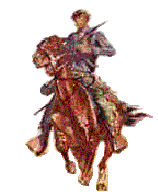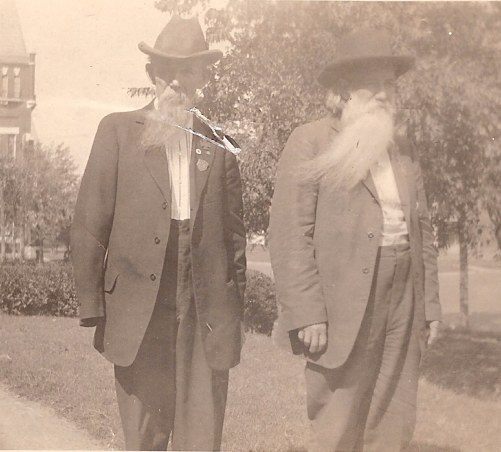Thomas Driskell | John Deshazo | Francis Denson | Drayton Dobbins | James Dollins | Lake Erie Eiland | Erarmus Darwin Eiland | Thomas L Fuller

Thomas L Fuller

Thomas Leonidas Fuller actually wrote a very interesting history about his time during the Civil War. 

"I enlisted from what is called the Cotton Belt of the State of Alabama, consisting of Bibb, Perry, Dallas, Green and Marengo Counties. I was going to College at Summerville, Alabama, when hostilities began. My teacher volunteered and went among the first soldiers-- and was killed in one of the first battles. I received papers to go to Richmond and join the Infantry, but my father told me if I would go, he preferred that I join the Cavalry. This I did. " for more click here
Thomas was only 17 years of age at the time he joined the war.
This is a long wonderful story sent to me by Robert Powell. His wife's great great grandfather was Private Thomas Leonidas Fuller. Thomas L. Fuller was born 24 Feb1843 and died 10 Dec 1924 in Muskogee, Oklahoma and is buried in Fort Smith Ark.
This picture was sent to me by Tim Fuller the Great-Great-grandson of Thomas L. Fuller Sr. Thomas is the one on the left.
Thomas served the whole war valiantly and courageously. He was always ready and willing to fight the Yankees.
Here is one of my favorite little snippets from his account:
"We were near the coast, moving north, sometimes trying to intercept Sherman’s base of supplies. When we got about midway the State of South Carolina, General Wheeler sent for Captain Brown of Company G 3rd Alabama and told him to go and bring him a Yankee, that he wanted some information and it might be he could get the information from a Yankee. He told him not to take more than three or four men and make no mistake.
Captain Brown came to me and asked if I wanted to go after a Yankee. I told him “Any old time”. He told me to be ready when he came back. We had to wait about one-half hour. We found the out-post picket. We dropped back and went east until we went far enough not to be heard. We came to a fence and from there we went a bit further down the fence for a good place to let the fence down.
We saw a cabin a short distance and five horses tied around the cabin. Captain Brown gave the command charge and we were around that little house in less time than it take me to write it. I jumped off my horse, untied the bay mare and went to looking for Yankees. We were short one and I began to look for the fifth Yankee. We looked and searched and were about to give up. I sized up the old dirt and stick chimney and how much it looked like the old stick and dirt chimneys in Louisiana in the days of “49.
I says to myself “I will just look up the chimney and see”, and to my surprise, there was the smoked Yankee up the chimney. He begged us to let him wash his face. Captain Brown told him there was no time for face-washing now, and we took the smoked Yankee and presented him to General Wheeler.
General Wheeler was amazed and wanted to know how we got him in that shape. Captain Brown told him he found him up a stick and dirt chimney, where the old negro woman was cooking for the bunch of them. We were not gone more than three hours when we had those Yankees in the presence of General Wheeler." click here for more
Most of men brought their own horses with them. It is interesting to note that Thomas also brought his own negro. This seems to have been a common practice.
"My father had sent me another negro after we got back off the East Tennessee campaign. The first one joined the Yankees at Dalton, Georgia. My negro got to gambling with a citizen's negro and they fell out over the cards and my negro cut the other negro pretty badly. They put him in and that was the last I ever heard of my negro.
After our rest-up we reported for duty at the foot of the Kennesaw Mountains. My second negro had gotten to me by this time and I made him do the work that was to be done and I had a pretty good time." click here for more
Sources
1. Robert Powell -The 10 legal page manuscript was recited by Thomas Fuller to my wife's grandfather around 1921. RPowell898@aol.com